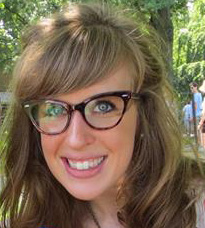Anthropology and Health
 What anthropology has to do with creating health content
What anthropology has to do with creating health content
When I tell people I majored in anthropology, I get a lot of blank stares. Then the questions start: What is anthropology? How does that relate to your current career? And my personal favorite: How did you even get a job?
Despite the relatively crooked path I’ve taken to my work, and the often-surprising extent of human audacity, I’ve always been proud of my anthropological background and the unique perspective the major provided me. Truthfully, the principles of anthropology apply to daily interactions all over the world, even in a corporate environment. The skills I acquired, both in my major and during my years at Wheaton, have enhanced my career path in some unexpected ways and their corresponding value has proven immeasurable.
So you’re probably wondering what it is that I actually do. I’m a health editor and content creator for an online magazine for college students. I manage freelance writers. I co-develop content direction and strategy. I fly by the seat of my pants. (A lot.) I work in a start-up environment, so I wear many hats—the event and party planner, the workplace wellness implementer, and the occasional email marketer. (The party-planning hat is the most fashionable by far.) And yes, anthro has helped with all of that. Here’s how:
The ability to shift perspective All of those readings on cultural relativism change the way you think and not just about other cultures, but about other viewpoints in general. My job requires me to take content and tweak it to fit a number of different audiences. That piece on contraception might not work for our faith-based schools. Our references to Tom Brady are probably irrelevant to our Canadian clients. And a quiz on how to organize your dorm room doesn’t necessarily meet our adult students’ needs. My ability to alter perspective based on the audience makes our content stronger across the editions, and that skill was developed and refined through my anthro coursework.
A sensitivity to different ways of seeing things You’ll be surprised by how many people lack sensitivity around difference and diversity in the workplace, and you’ll be even more surprised by the issues it causes. Your boss might not understand why your coworker feels excluded by the lack of gender options in your surveys. Your male colleague might not consider his remarks on your “feminine charm” offensive.
We all come from different backgrounds and have varying degrees of education and experiences around issues of diversity. A heightened sensitivity to these differences, and a willingness to address and explore them, will set you apart. I find myself monitoring my company’s interactions, noting what we might need to work on, and bringing issues to the table that others haven’t seen merely because I was taught to look. There’s value in that.
The importance of representation Creating a digital magazine has its own set of challenges when it comes to representation. How do we show diversity in the students we feature? What do the images subconsciously or consciously suggest about our intended audience? Even subtle language cues can isolate certain populations. As anthro majors, we know this, but not everyone does. Calling attention to who might be left out by your product or service can be the difference between reaching more people or staying static.
I make it a point to think about what our content says about us, the writers, editors, and graphic designers, and how that affects who we portray and how we do so. (You might call this a practical application of positionality.) And I try to broaden it, or at least make us aware of our blind spots. Doing so has shown others why it’s important and has made our content more relatable to a wider range of student experiences.
So ignore the unemployment jokes—this is no waste of time. You’re going to do some amazing things. And anthro will help. I promise.
About the author
Chelsey Taylor is Associate Editor at Student Health 101, a digital health magazine. She graduated magna cum laude from Wheaton in 2009 with a BA in anthropology and taught English in South Korea as a Fulbright Fellow. Her interests include using communication as a tool to affect health behavior change, relentlessly pursuing the elusive runner’s high, and crafting an impeccable ballerina bun.
-
Categories:
- Anthropology